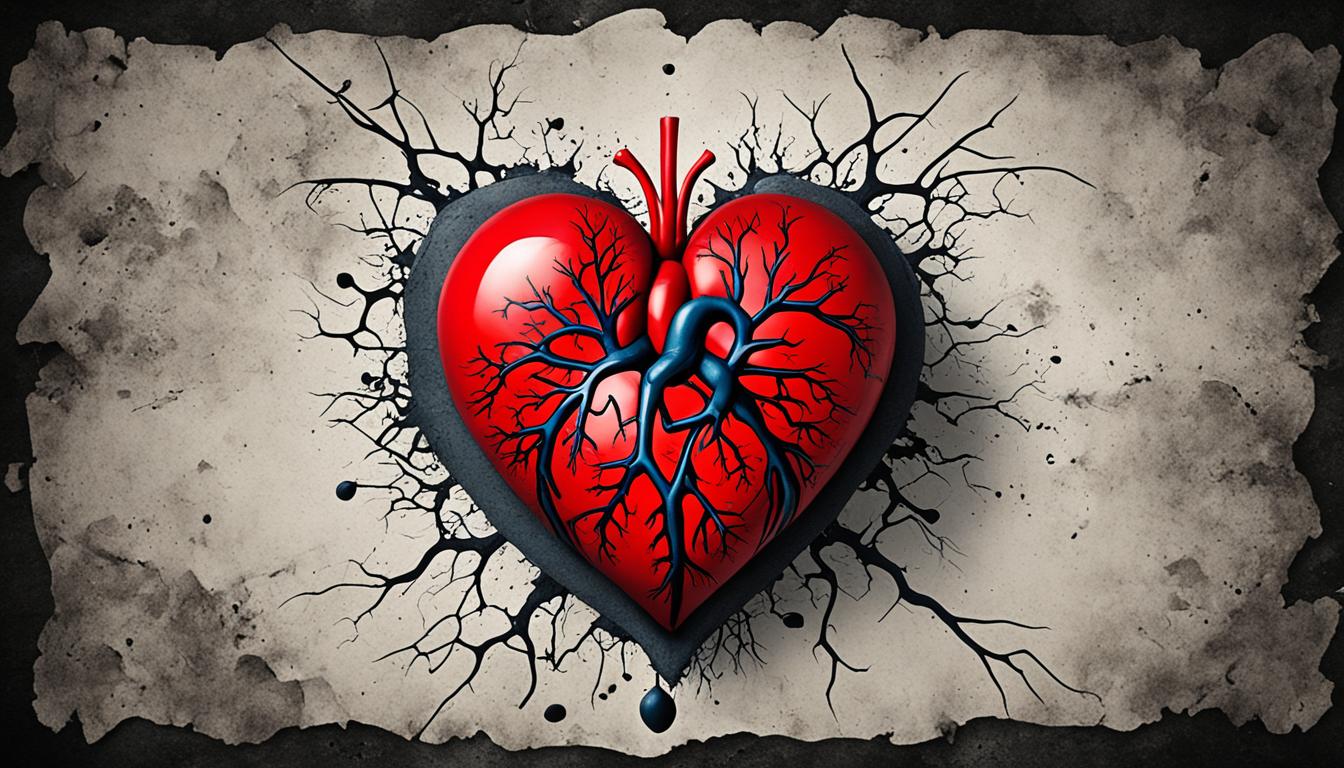Heart disease is a top cause of death around the globe, impacting millions yearly. A main form is coronary artery disease (CAD), caused by plaque in the heart’s blood supply. This leads to symptoms like chest pain, breath shortness, and tiredness. Heart failure is also common, where the heart can’t pump enough blood. Heart attacks happen when blood flow to the heart is suddenly blocked.
Scientists are looking into unique ways to treat heart disease. Stem cell therapy is a standout. It has the potential to repair heart tissue and boost the heart’s function. Studies have shown that it lessens symptoms and improves life quality for patients. This new therapy brings hope to those battling heart conditions.
Key Takeaways:
- Heart disease is a major cause of mortality globally.
- Coronary artery disease (CAD) is a common type of heart disease characterized by plaque buildup in the arteries.
- Heart failure occurs when the heart is unable to pump enough blood to meet the body’s needs.
- Heart attacks result from a sudden blockage of blood flow to the heart.
- Stem cell therapy shows promise in regenerating damaged heart tissue and improving cardiac function.
Understanding Heart Failure and Ischemic Heart Diseases
Heart failure is when the heart can’t pump enough blood. This leads to symptoms like shortness of breath and tiredness. It also causes swelling in the ankles and a faster heart rate. Ischemic heart diseases relate to the heart not getting enough blood. This happens because the coronary arteries are narrowed or blocked.
Atherosclerosis is the main reason behind ischemic heart disease. It’s when arteries have plaques that block blood flow. High cholesterol, blood pressure, and smoking can increase the risk.
Spotting and treating these heart issues early is very important. This helps avoid further heart damage. Identifying symptoms like breathlessness and fatigue are key. Knowing the root causes is also crucial.
| Heart Failure Symptoms | Ischemic Heart Disease Symptoms |
|---|---|
|
|
Understanding the causes and symptoms helps doctors treat heart problems better. Acting early can control symptoms and improve life quality. Also, a healthy lifestyle is important. It includes a good diet, regular exercise, and not smoking. These steps prevent heart issues.
Diagnosis and Treatment Options for Heart Disease
Doctors diagnose heart disease with blood tests and imaging. These help them see the heart’s health to choose the best treatment.
Blood tests find markers that show heart damage. Troponin, CK-MB, and BNP are often tested to learn about heart health. High levels can mean a heart attack or other problems.
Tests like echocardiography and cardiac catheterization check the heart’s shape and how it works. Echocardiography uses sound to take pictures of the heart. Cardiac catheterization checks blood flow by putting a tube in the blood vessels.
When heart disease is diagnosed, choices for treatment are discussed. The kind of treatment depends on how bad the heart disease is. Changing your lifestyle can really help, like eating right, exercising, and not smoking.
Doctors might also give you medicine. This could be for blood pressure or to lower cholesterol. They could also give you pills to stop blood clots or to make your heart work better.
Sometimes, surgery is needed. Angioplasty and bypass surgery help blood flow better. Angioplasty opens blocked arteries with a small balloon. Bypass surgery makes new ways for blood to flow around blockages.
Treatment Options for Heart Disease
| Treatment Option | Description |
|---|---|
| Lifestyle Changes | Adopting a heart-healthy diet, engaging in regular exercise, quitting smoking, and managing stress. |
| Medications | Prescription drugs to manage blood pressure, cholesterol levels, blood thinners, and medications to improve heart function and rhythm. |
| Angioplasty | A procedure to widen narrowed or blocked arteries using a balloon-like device. |
| Bypass Surgery | A surgical intervention to create new pathways for blood to circumvent blocked or narrowed arteries. |
Stem cell therapy is a new hope for heart disease. It uses stem cells to help the heart heal and pump better. This research area offers a new way to treat heart issues and might help patients a lot.
The Future of Heart Disease Treatment – Stem Cell Therapy
Stem cell therapy is a new way to treat heart disease. It uses the power of stem cells to fix damaged heart tissue. This makes the heart work better. Stem cells can turn into heart cells. These are the cells that help the heart beat.
They also release things that help in healing and grow new tissue.
Studies show good results with using stem cell therapy for heart disease. People’s heart function has improved. Their life quality gets better too. It’s a new hope for those with heart issues.
Stem cell therapy for the heart is still new. Yet, it’s growing fast. As more is learned, it might become a common treatment. This gives hope for heart healing and recovery.

